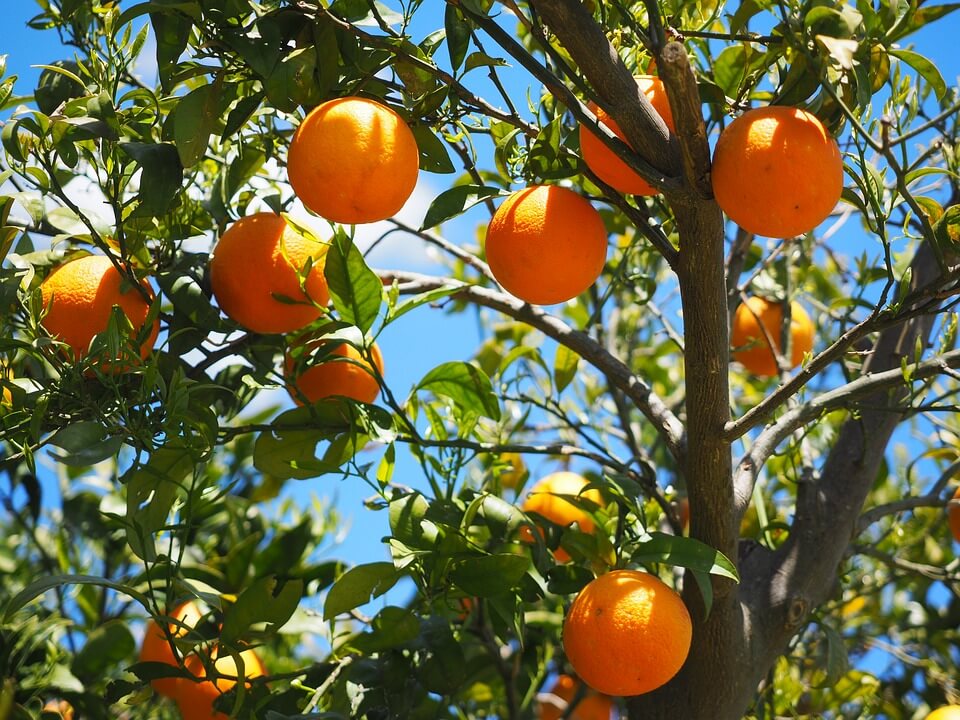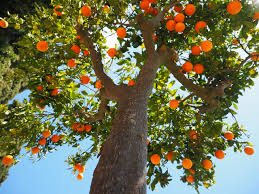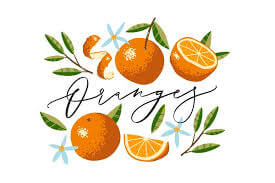Oranges
10/10/2020 4:16:00 PM
Image: Storm Water Solutions
Do you know?
- There are over 600 varieties of oranges.
- The western world has associated the Orange tree with kindness, loyalty and generosity! In Eastern history, Orange trees have come to symbolise prosperity and happiness.
Let's explore the story!

Image: pixabay.com
Listen and choose the correct answer to each of the following questions.
- Oranges are ____.
- Some oranges do not have ____.
- shiny and green
- old and wild
- sweet and juicy
- thin and white
- seeds
- sections
- flowers
- a·skin
There are many _____ orange trees in China today.
- shiny
- thin
- wild
- thick
Complete the text you are listening to by dragging the correct word to each blank.
Oranges
Everybody loves oranges. They are sweet and juicy. They are in , so it is easy to eat them. Some oranges do not have any . Some have a thick skin, and some have a thin skin.
The orange tree is beautiful. It has a lot of green leaves. The small white flowers smell very sweet. An orange tree has flowers and fruit at the same time.
There were orange trees twenty million years ago. The oranges were very small, not like the ones today. The orange tree probably came from China. Many different kinds of oranges grow there today. The Chinese started to orange trees around 4,400 years ago. Chinese art has lovely old pictures of oranges and orange trees.
Farmers in other parts of Asia and the Middle East learned to raise oranges from the Chinese. Then they taught Europeans. The Spanish planted orange trees in the New World (North and South America). They took them to Florida first. Oranges are a very important crop in Florida today.
In English, orange means both a fruit and a color. We use the name of the fruit for the color.
Read the passage and answer the questions.
Oranges

Image: creativemarket.com
Everybody loves oranges. They are sweet and juicy. They are in sections, so it is easy to eat them. Some oranges do not have any seeds. Some have a thick skin, and some have a thin skin.
The orange tree is beautiful. It has a lot of shiny green leaves. The small white flowers smell very sweet. An orange tree has flowers and fruit at the same time.
There were orange trees twenty million years ago. The oranges were very small, not like the ones today. The orange tree probably came from China. Many different kinds of wild oranges grow there today. The Chinese started to raise orange trees around 4,400 years ago. Chinese art has lovely old pictures of oranges and orange trees.
Farmers in other parts of Asia and the Middle East learned to raise oranges from the Chinese. Then they taught Europeans. The Spanish planted orange trees in the New World (North and South America). They took them to Florida first. Oranges are a very important crop in Florida today.
In English, orange means both a fruit and a color. We use the name of the fruit for the color.
- No one
- Chinese people
- Farmers in the New World
- The Spanish
How did the United States get orange trees?
- Farmers planted orange trees in Asia and took them to Florida.
- The Chinese planted orange trees in Spain and took them to Florida.
- The Spanish took orange trees to Florida, a place in the New World.
- The Spanish planted orange trees in the Middle East and took them to Florida.
What does "orange" mean?
- Oranges are sweet and juicy with seeds and a skin.
- "Orange" is both a fruit and a color.
- The color of oranges is so beautiful that in English we use the name of the fruit for the color.
- Oranges are a very important crop in the world.
Put the right word in each blank. The sentences are from the text.
1. The Chinese started to orange trees around 4,400 years ago.
2. Many different kinds of oranges grow there today.
3. They are in , so it is easy to eat them.
4. Some oranges do not have any .
5. It has a lot of green leaves.
Put the right word in each blank. These are new sentences for words in the text.
1. Plants grow from .
2. The polar bear and the hippo are animals.
3. The book is divided into four .
4. The farmers there corn, wheat, a wide variety of vegetables, even grapes.
5. Who owns this new car?